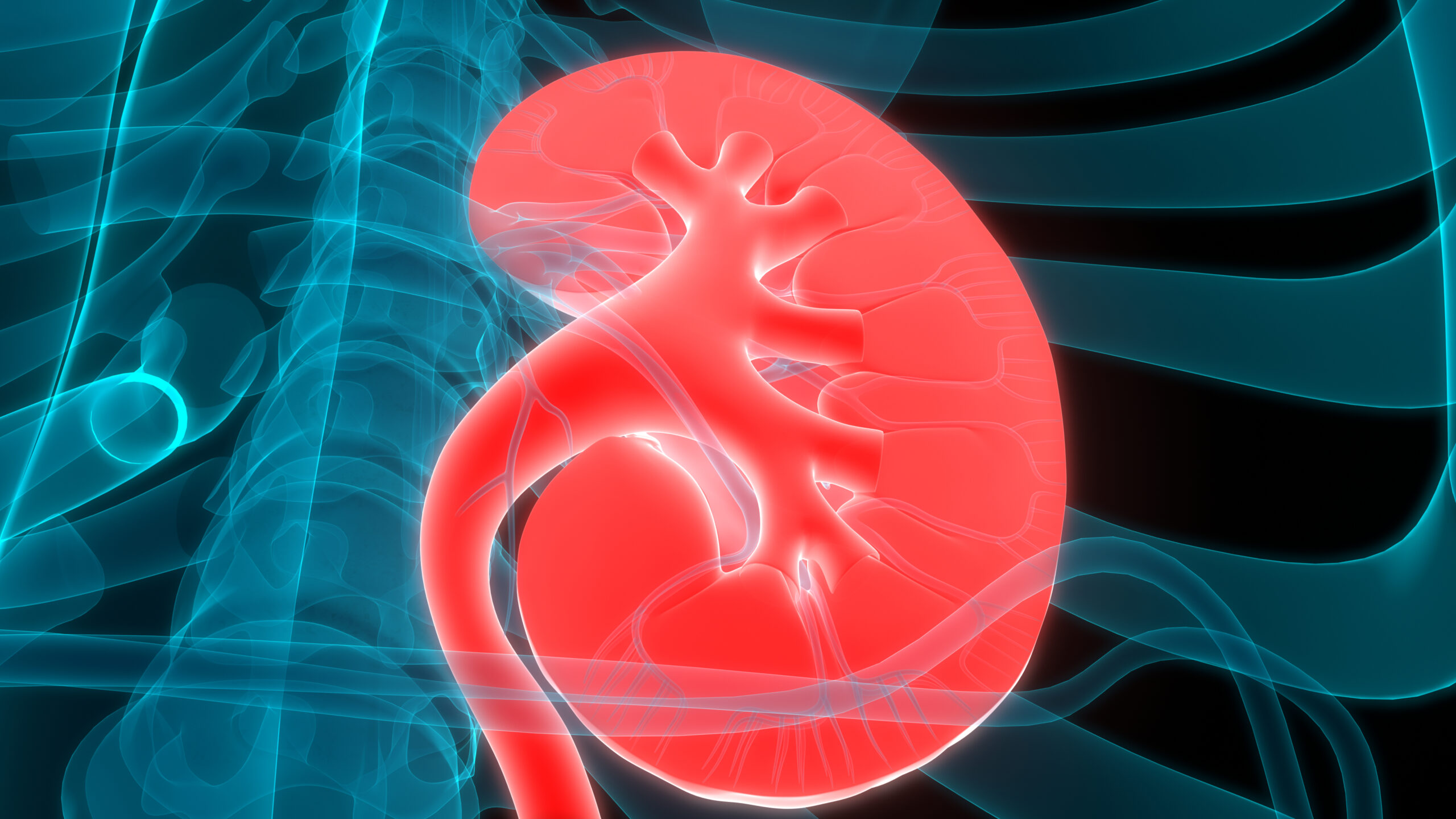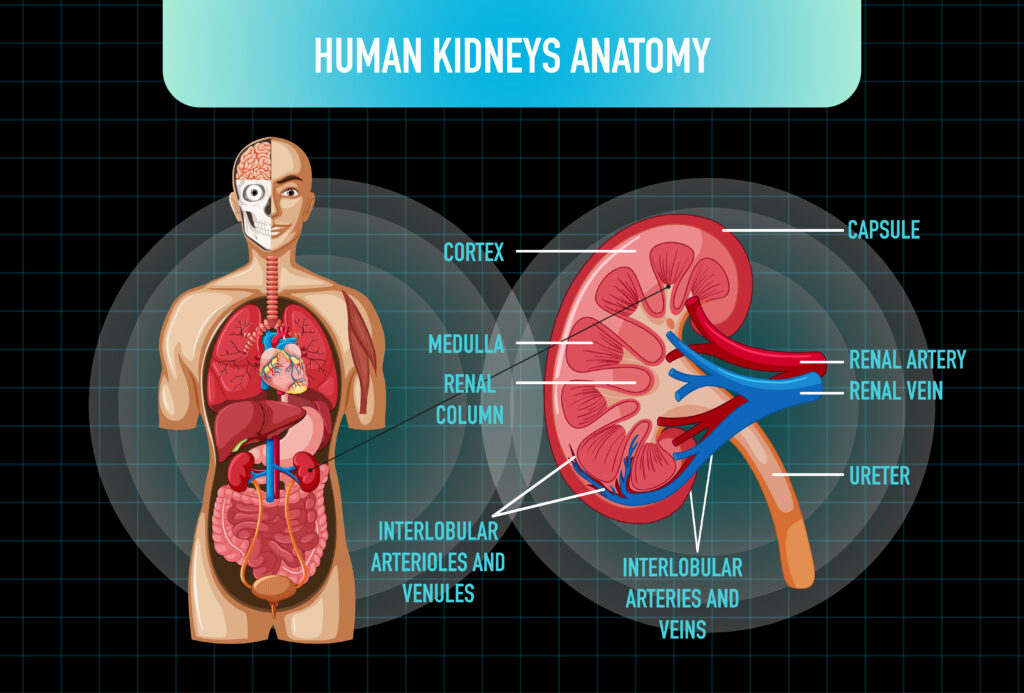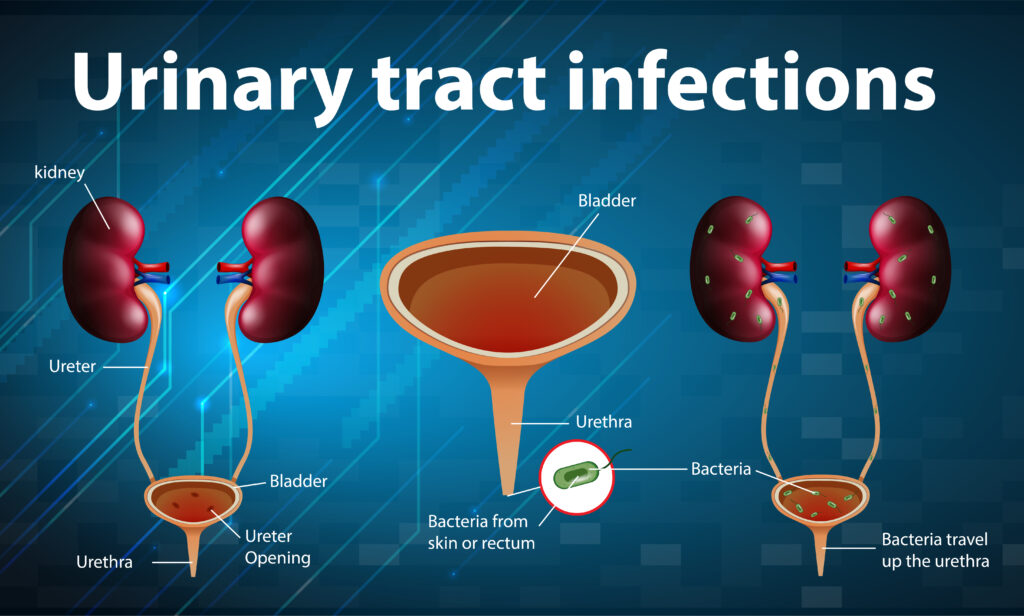Kidney Infection Doctor in Miami

Kidney Infections: Causes, Symptoms, Treatment, and Prevention
What causes chronic kidney disease?
 When patients are looking for a kidney infections doctor in Miami, they usually suspect a serious or mild bacterial infection that could be affecting the kidneys. These infections can cause significant discomfort and can lead to complications if left untreated. Understanding the causes, symptoms, treatment options, and prevention methods for kidney infections is crucial in managing this condition effectively.
When patients are looking for a kidney infections doctor in Miami, they usually suspect a serious or mild bacterial infection that could be affecting the kidneys. These infections can cause significant discomfort and can lead to complications if left untreated. Understanding the causes, symptoms, treatment options, and prevention methods for kidney infections is crucial in managing this condition effectively.
What Are Kidney Infections?
1.1 Understanding the Kidneys
As a medical kidney specialist in Miami, I cannot emphasize enough the importance of understanding the functioning of the human kidneys.
Here are the facts:
Our bodies need to stay healthy. The extra water and chemicals that our bodies don’t need are turned into a liquid called urine. This urine travels from the kidneys through tubes called ureters and gets stored in a balloon-like organ called the bladder. When the bladder is full, we go to the bathroom to get rid of the urine.
So, our kidneys help keep our bodies clean and healthy. They make sure our blood is always clean by removing things we don’t need and keeping what’s important for us.
Just like how we need clean water to drink, our bodies need clean blood to work properly.
An important aspect of kidney function to consider is the risk of kidney infections, which are among the common kidney problems one may encounter.

1.2 The Causes of Kidney Infections
There are several factors that can increase the risk of developing kidney infections.
One common cause is a blockage in the urinary tract, such as kidney stones, which can impede the flow of urine and create an environment where bacteria can thrive.
Another contributing factor is a weakened immune system, as it might not be able to fend off the invading bacteria effectively.
Furthermore, some individuals may have a higher risk of kidney infections due to anatomical abnormalities in their urinary tract or a condition called vesicoureteral reflux, where urine flows backward from the bladder into the ureters and kidneys.
1.3 Difference Between UTIs and Kidney Infections
Urinary tract infections (UTIs) and kidney infections are related but distinct medical conditions that affect different parts of the urinary system.
Here are the key differences between the two:
- UTIs: These infections typically involve the lower urinary tract, which includes the bladder (cystitis) and the urethra (urethritis). UTIs occur when bacteria, usually Escherichia coli (E. coli), enter the urethra and multiply in the bladder.
- Kidney Infections: Also known as pyelonephritis, kidney infections affect the upper urinary tract, specifically the kidneys. They often begin as lower UTIs and progress upward when bacteria travel from the bladder through the ureters to the kidneys.
Causes of Kidney Infections
2.1 Bacterial Infection as the Primary Cause
Bacterial infections are the primary cause of kidney infections. Kidney infections, also known as pyelonephritis, typically occur when bacteria enter the urinary system and travel up to the kidneys.
The most common type of bacteria responsible for kidney infections is Escherichia coli (E. coli), which usually resides in the intestines. These bacteria can enter the urinary system through the urethra, which is the tube that carries urine out of the body. From there, they multiply and move up the urinary tract towards the bladder and eventually reach the kidneys.
Several factors can increase the risk of bacterial infection leading to kidney infections, such as urinary tract obstructions, a weakened immune system, or vesicoureteral reflux. Vesicoureteral reflux is a condition where urine flows backward from the bladder into the ureters and kidneys, which can allow bacteria to reach the kidneys more easily.
2.2 Risk Factors for Kidney Infections
Bacteria can enter the urinary system and travel up to the kidneys. There are several risk factors that can make a person more susceptible to kidney infections.
One major risk factor is having a urinary tract infection (UTI), which can progress to a kidney infection if left untreated. In addition, blockages in the urinary tract, such as kidney stones or an enlarged prostate, can hinder urine flow and create an environment where bacteria can thrive. A weakened immune system, due to conditions like diabetes or HIV, may also increase the risk of kidney infections, as it might not be able to fight off invading bacteria effectively.

Symptoms of Kidney Infections
3.1 Common Signs and Symptoms
Kidney infections, or pyelonephritis, often present with a range of symptoms that can help identify the condition. Common signs and symptoms include fever, chills, lower back or side pain, frequent urination, a strong urge to urinate, burning sensation during urination, cloudy or strong-smelling urine, and nausea or vomiting.
3.2 Severity and Progression of Symptoms
The severity and progression of symptoms in a kidney infection, can vary depending on factors such as the individual’s overall health and the effectiveness of their immune response. Initially, symptoms may be mild and resemble those of a urinary tract infection, with frequent urination, a strong urge to urinate, and a burning sensation during urination. As the infection progresses and reaches the kidneys, more severe symptoms can develop, including fever, chills, lower back or side pain, nausea, and vomiting.
3.3 When to Seek Medical Attention
If left untreated, kidney infections can lead to serious complications such as kidney damage, abscess formation, and sepsis, which is a life-threatening response to the infection. Prompt diagnosis and treatment are essential to prevent these complications and ensure a successful recovery.
Diagnosis of Kidney Infections
4.1 Medical History and Physical Examination
Medical History: The doctor will ask the patient about their symptoms, previous urinary tract infections, any underlying health conditions, and other factors that could increase their risk of developing a kidney infection. This information helps the doctor understand the patient’s overall health and determine if their symptoms might be related to a kidney infection or another condition.
Physical Examination: During the physical examination, the doctor will check for signs of a kidney infection, such as tenderness or pain in the lower back or side, fever, and an increased heart rate. They might also examine the abdomen for signs of bladder inflammation or swelling. This hands-on assessment provides the doctor with additional information about the patient’s symptoms and helps confirm whether a kidney infection is likely.
Both the medical history and physical examination are important initial steps in diagnosing kidney infections, as they provide valuable information about the patient’s symptoms, risk factors, and overall health.
Once these steps are completed, the doctor may order further tests, such as urine analysis or imaging studies, to confirm the diagnosis and determine the most appropriate treatment plan.
4.2 Urine Analysis and Culture
Urine analysis and culture are essential diagnostic tools for detecting kidney infections. A urine analysis involves examining a urine sample for the presence of white blood cells, red blood cells, and bacteria, which can indicate an infection in the urinary system. This analysis helps identify the specific type of bacteria causing the infection, allowing doctors to determine the most effective antibiotic treatment for the patient. These tests not only confirm the presence of a kidney infection but also guide the selection of appropriate medications to ensure a successful recovery.
4.3 Imaging Tests for Kidney Infections
Imaging tests for kidney infections are used to visualize the urinary system and detect any abnormalities that might be contributing to the infection. These tests can include ultrasounds, computed tomography (CT) scans, and magnetic resonance imaging (MRI). Ultrasounds use sound waves to create images of the kidneys, ureters, and bladder, while CT scans and MRI use advanced technology to produce detailed cross-sectional images.
These imaging tests help doctors identify potential issues such as blockages, kidney stones, abscesses, or anatomical abnormalities that could be causing or exacerbating the kidney infection. By providing a clearer picture of the patient’s urinary system, imaging tests play a crucial role in diagnosing kidney infections and informing the most appropriate treatment plan.
Treatment for Kidney Infections
5.1 Antibiotics for Bacterial Infections
Antibiotics are the primary treatment for kidney infections caused by bacterial infections. They work by targeting specific components of the bacteria, which ultimately inhibits bacterial growth or kills them outright. When prescribed for a kidney infection, antibiotics help eliminate the harmful bacteria responsible for the infection, allowing the body’s immune system to recover and heal the affected tissues.
The choice of antibiotic depends on the type of bacteria identified through urine culture, as well as the patient’s medical history and potential allergies.
5.2 Pain Management
Pain management is an important aspect of treating kidney infections, as it helps alleviate the discomfort and pain associated with the condition, such as lower back or side pain. Effective pain management can include over-the-counter pain relievers like acetaminophen or nonsteroidal anti-inflammatory drugs (NSAIDs) to reduce inflammation and provide relief from pain.
In more severe cases, prescription pain medications may be necessary. Alongside antibiotics, pain management is a vital component of the treatment plan, ensuring that patients can recover more comfortably and focus on healing from the infection.
5.3 Hospitalization for Severe Infections
Hospitalization for severe kidney infections may become necessary when the patient is experiencing complications, or the infection is not responding to oral antibiotics. Complications can include high fever, severe pain, dehydration, nausea and vomiting that inhibit oral intake, or the presence of an abscess in the kidney. Hospitalization may also be recommended for patients with underlying conditions such as diabetes, kidney disorders, or weakened immune systems, as these individuals are at a higher risk of developing severe infections or complications.
During hospitalization, patients may receive intravenous (IV) antibiotics, which provide a more rapid and effective treatment for severe kidney infections. IV fluids can also be administered to prevent dehydration and maintain electrolyte balance. In some cases, additional treatments or procedures may be required to address complications like kidney abscesses or obstructions in the urinary system. Hospitalization ensures that patients receive the appropriate level of care and close monitoring by healthcare professionals, increasing the chances of a successful recovery from severe kidney infections
Prevention of Kidney Infections
6.1 Stay hydrated: Drink plenty of water throughout the day to flush out bacteria from the urinary system and reduce the risk of infection.
6.2 Urinate regularly: Avoid holding in urine for long periods, as this can promote bacterial growth. Empty your bladder frequently to minimize infection risks.
6.3 Wipe front to back: After using the toilet, always wipe from front to back to prevent bacteria from the rectal area from spreading to the urethra.
6.4 Maintain genital hygiene: Wash your genital area with mild soap and water daily, keeping it clean and free of harmful bacteria.
6.5 Urinate after sexual activity: Emptying your bladder after sexual intercourse helps flush out any bacteria that may have entered the urethra during the act.
6.6 Choose breathable underwear: Opt for loose-fitting, cotton underwear to allow proper airflow and reduce moisture buildup, which can encourage bacterial growth.
6.7 Avoid irritants: Limit the use of harsh soaps, bubble baths, and feminine hygiene products that may cause irritation and increase the risk of urinary tract infections.
6.8 Practice good sexual hygiene: Ensure both you and your partner maintain proper hygiene before engaging in sexual activities to minimize the spread of bacteria.
By adopting these hygiene and personal care habits, you can significantly reduce your risk of developing kidney infections and maintain overall urinary tract health.
Conclusion
In conclusion, maintaining good hygiene and personal care habits is essential for preventing kidney infections and promoting overall urinary tract health. By staying hydrated, practicing proper genital hygiene, choosing breathable clothing, and taking precautions during and after sexual activity, individuals can minimize their risk of developing kidney infections. It is crucial to be proactive about one’s health and take the necessary steps to reduce the likelihood of infections. Remember that early detection and treatment are key to ensuring a successful recovery, so if you experience any symptoms of a kidney infection, consult with Dr Javier Alfonso promptly.
FAQ's
Kidney infections are not contagious in the traditional sense, as they cannot be directly transmitted from person to person through touch or respiratory droplets. Kidney infections typically result from bacteria entering the urinary tract and traveling up to the kidneys. However, practicing good hygiene can help prevent the spread of bacteria that could potentially lead to kidney infections in susceptible individuals.
If left untreated or not promptly addressed, kidney infections can lead to long-term complications such as kidney scarring, reduced kidney function, high blood pressure, and even kidney failure.
In some rare cases, severe kidney infections can also lead to sepsis, a life-threatening condition caused by the body’s response to infection. Early detection and treatment are crucial to preventing these complications.
Yes, kidney infections are more common in women than men. This is primarily due to anatomical differences, as women have a shorter urethra, making it easier for bacteria to enter the urinary tract and travel to the kidneys. Additionally, the female urethra is closer to the anus, increasing the risk of bacteria spreading from the rectal area to the urinary tract.
Currently, there are no vaccines available to prevent kidney infections. The best way to prevent kidney infections is by practicing good hygiene, maintaining a healthy lifestyle, and following the preventive measures outlined earlier, such as staying hydrated and urinating frequently to flush out bacteria from the urinary system.
Yes, kidney infections can be recurrent, especially if the underlying cause is not adequately addressed or treated. Factors such as urinary tract abnormalities, kidney stones, or weakened immune systems can increase the risk of recurrent kidney infections. If you experience recurrent kidney infections, it is essential to consult your healthcare provider to determine the underlying cause and develop an appropriate treatment plan.
Services
- Kidney Stones
- Blood/Protein in Urine
- Acute and Chronic Glomerulopathies
- Chronic Kidney Failure/Disease
- Nephrotic Syndrome
- Renal Vasculitis
- Congenital Uropathy
- Dialysis
- Post Transplant Treatment
Contact Us
- 7392 NW 35th Ter Miami, FL 33122
- (786)703-4932
- appointments@miamikidneyspecialist.com
Kidney infections, also known as pyelonephritis, are serious bacterial infections that affect the kidneys. These infections can cause significant discomfort and can lead to complications if left untreated. Understanding the causes, symptoms, treatment options, and prevention methods for kidney infections is crucial in managing this condition effectively.
What Are Kidney Infections?
1.1 Understanding the Kidneys
As a medical kidney specialist in Miami, I cannot emphasize enough the importance of understanding the functioning of the human kidneys.
Here are the facts:
Our bodies need to stay healthy. The extra water and chemicals that our bodies don’t need are turned into a liquid called urine. This urine travels from the kidneys through tubes called ureters and gets stored in a balloon-like organ called the bladder. When the bladder is full, we go to the bathroom to get rid of the urine.
So, our kidneys help keep our bodies clean and healthy. They make sure our blood is always clean by removing things we don’t need and keeping what’s important for us.
Just like how we need clean water to drink, our bodies need clean blood to work properly.
An important aspect of kidney function to consider is the risk of kidney infections, which are among the common kidney problems one may encounter.
Our physicians will ensure that you receive the best possible care.
For appointments, call:

